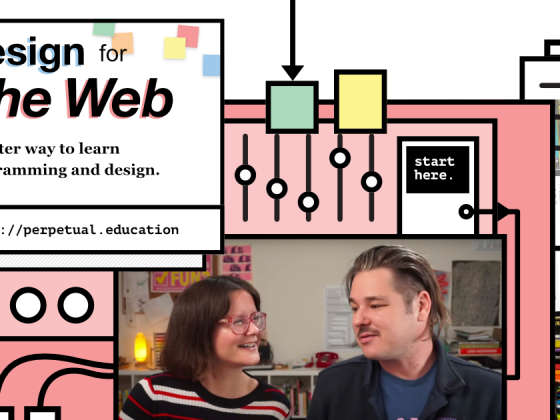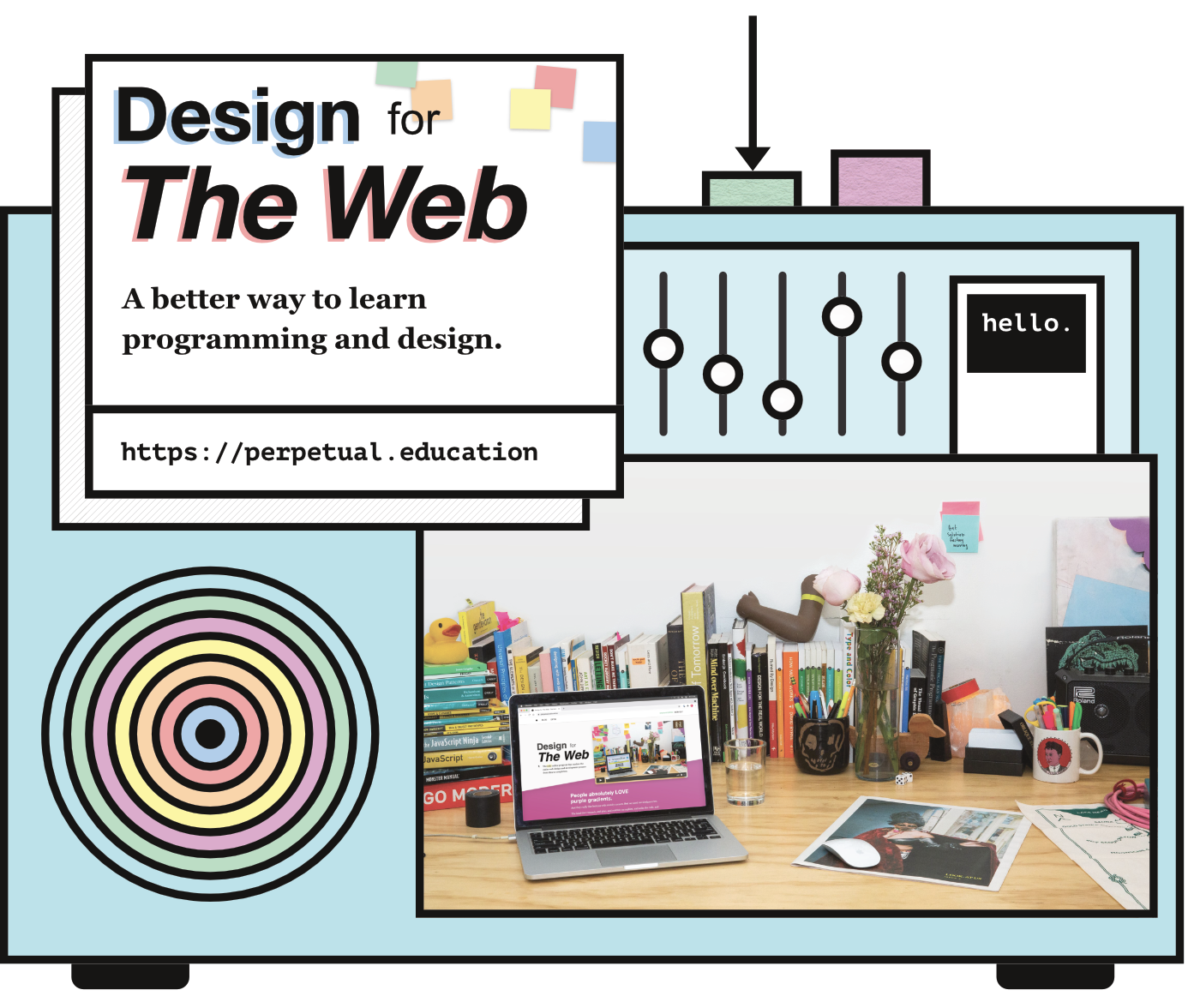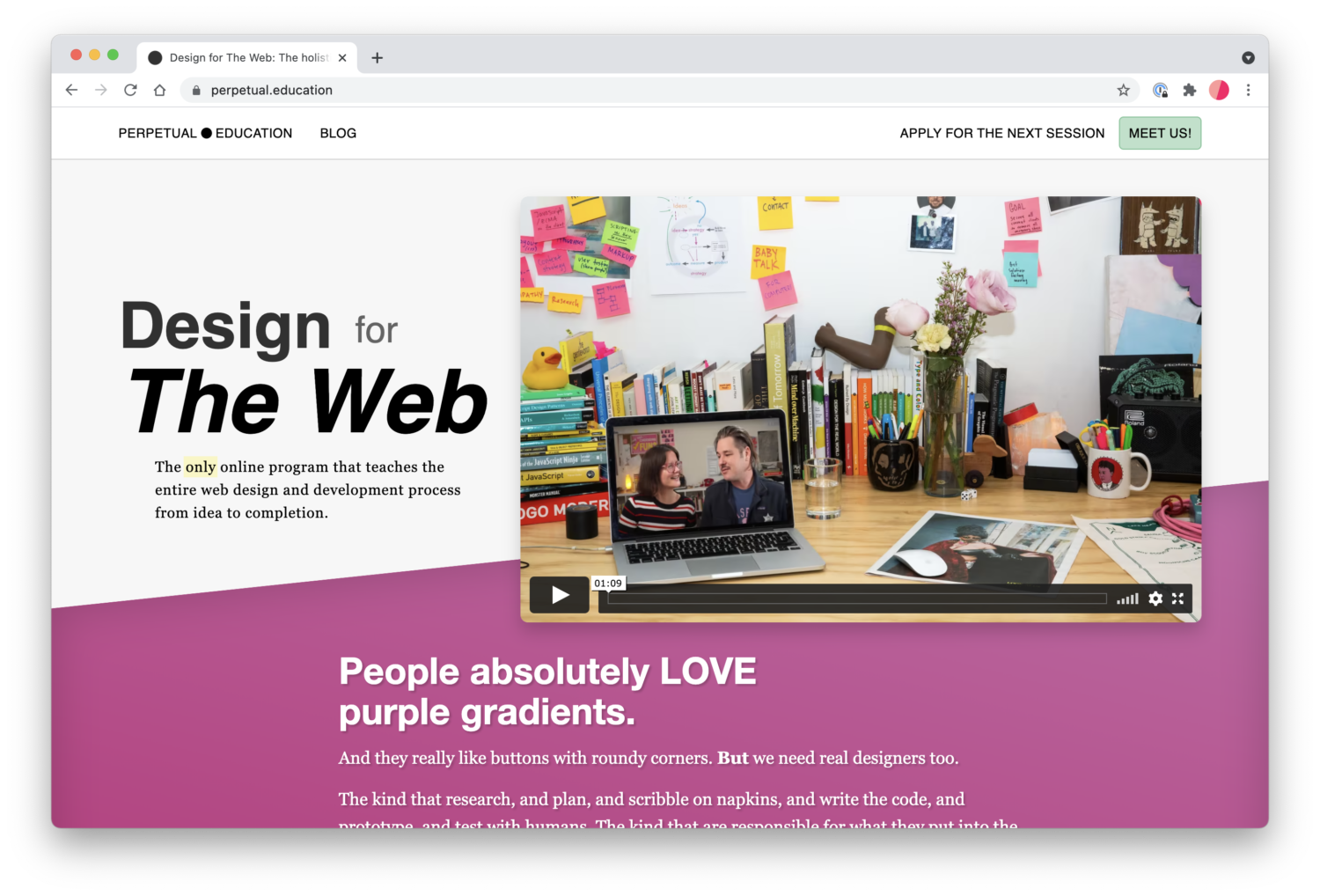
It's undoubtedly an exciting time for web development and design. The buzz is all about coding, however, there is a much broader set of roles to play.
Alternatives to classic college degrees were already on the rise, and the pandemic has further increased the need for online education. There are more opportunities than ever, and it can be daunting to choose between schools in this complex field.

There are some exciting new schools out there, but first - let's get a quick lay of the land. What are the options?
In-person colleges are still in a tough spot pandemic-wise, but beyond that, they require four years of dedication, have higher tuition, and, depending on your situation - might be the wrong fit. Computer Science degrees involve very little web development, and Graphic Design degrees aren't up to speed with User Experience Design.
MOOC (massive open online classes) classes can leave you lost in years of self-teaching. There is often no clear timeline or accountability system. Studies show low completion rates, but you've probably started a few yourself - so, you know.
Coding / UX boot camps claim to prepare you for entry-level roles but can feel very surface level. Their questionable success rates seem to be trending downward as they are purchased and streamlined? by giant corporations.
One of the more exciting new schools in this space is Perpetual Education.
Perpetual Education popped in 2021, right here in Los Angeles. They believe that the future will require designers with a broader knowledge and understanding of the entire design process.
Their flagship course, Design for The Web? (DFTW) is a 6-month online design and programming mentorship. DFTW combines the best parts of a stepped college curriculum, boot camp pace, flexibility of a MOOC, and one-on-one meetings with the instructor.

Simply put, DFTW teaches the entire design process from idea to completion. DFTW teaches programming AND design together. The goal isn't to become a run-of-the-mill developer, but instead - to find your distinctive place in the design process. People entering the field will quickly learn that it's a lot more in-depth than just coders? and decorators. PE supports you as you discover your unique passions and guides you as you build a portfolio that proves your value.
If you've tried learning on your own, you know that it's rough out there. There are millions of tutorials and free resources. PE focuses on just one or two concepts a day and allows you to remove all other distractions. Less is more.
I gained more knowledge these past 2 months than I realistically would have in 2 years of self-teaching and tutorials.
DFTW reverse engineers six years of self-teaching. Their goal is to teach you each concept in the order they wish they had learned it.
In short, I feel a sort of metamorphosis? taking place. It manifests in the way I observe, contemplate, consider and problem-solve. At times, it's terrifying. Mostly, it's gratifying. I'm grateful for every second of it. I chose wisely. This experience could not be replicated. Long Live, PE!!!?
DFTW engages people of all skill levels and backgrounds. Each lesson includes written articles, video lectures, sets of exercises to cement the day's concepts, group interaction, and your instructor is only a click away. The course videos begin with a completely blank computer, so they mean it when they say any skill level. Whether you are just starting to explore this career or are already in the field and want to pivot in your role, PE can get you there.
But the best way to find out - is to talk to Ivy and Derek yourself. They can help you navigate the field regardless of what school you choose.
Advertising disclosure: We may receive compensation for some of the links in our stories. Thank you for supporting LA Weekly and our advertisers.